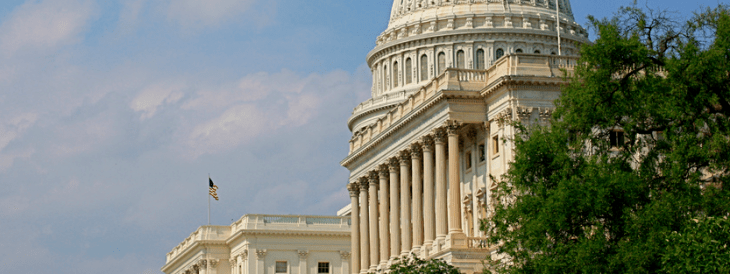The Senate unanimously passed the Digital Accountability and Transparency Act, or DATA Act, today.
The DATA Act is designed to help bring new transparency to spending by the federal government, by making spending data available to the public at USASpending.gov. The bill’s goal, to quote the Congressional Research Service’s (CRS) summary, is to “provide consistent, reliable, and searchable government-wide spending data.” That data will “improve the quality of data submitted to USASpending.gov by holding federal agencies accountable for the completeness and accuracy of the data submitted,” according to the CRS.
No politician wants to be caught opposing clarity in government spending, which makes the act’s unanimous passage unsurprising.
As the Washington Post notes, “[t]he final language also requires everything the federal government spends at the appropriations account level to be published on USASpending.gov, with the exception of classified material and information that wouldn’t be revealed in response to a Freedom of Information Request.”
Precisely.
The more data we the regular folk and assorted watchdog groups have, the better oversight we can impugn upon our elected officials from every branch and level of government.
Republican House leadership appears confident of quick passage:
And original co-sponsors of the bill in the House that passed in November seem quite content with the Senate’s actions:
The original version of the bill passed the House by a vote of 388-1. Given that, the chance of it failing to pass the House this go-round is incredibly low.
With broad definitions of what counts as a group that must report its spending, the DATA Act would force the Secretary of the Treasury to start tracking submitted data from “each federal agency” monthly, with data including “outlays, funds reprogrammed or transferred,” according to the CRS.
The secretary will set the regulations for data, and as possible make the information collected available in formats that are “widely accepted, nonproprietary, searchable, [and] platform independent.” This will harmonize data from various agencies, allowing for better comparison and historical tracking. Also, no group should be able to hide behind technical issues to prevent public oversight.
The Director of the Office of Management and Budget will have a role, as well, helping to set data standards, and putting together a two-year pilot program to help gel rules so that reporting standards are not onerous to parties forced to comply.
Nice to see the above on the fast track. It’ll take years, according to current language, to get the program fully up and running. But given current momentum, I think it’s safe to say that whoever wins the next presidential election will see, early in their first term, a new amount of light spilling in from outside on just what the government is buying and how much it’s willing to pay.
IMAGE BY FLICKR USER Zoe Rudisill UNDER CC BY 2.0 LICENSE (IMAGE HAS BEEN CROPPED)
